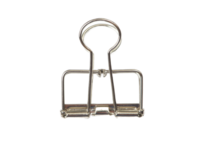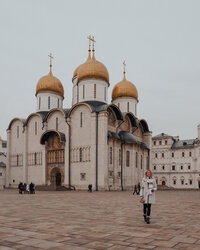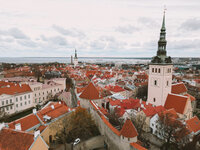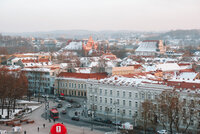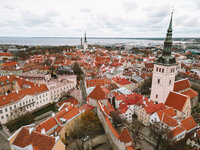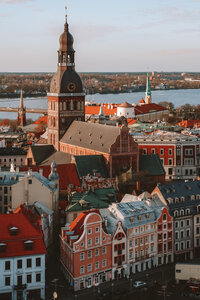

A Complete Guide to the Prepositional Case in Russian
Today’s guide will teach you all about the prepositional case in Russian! If you’ve never heard of the prepositional case, first check out my guide on the Russian Case System to get the lay of the land. The prepositional case is used for a variety of functions including describing where an action takes place, indicating what you are thinking or talking about, discussing sports you play and more.
Before we look at all the functions and how to form the prepositional case, here is a basic example of how the prepositional case works. Take the word “машина” in Russian (car) (It ends in an “а” so we know that it is feminine) and the word bus “автобус” (It ends in a consonant so it is masculine). If you look at the endings chart below, you’ll see that feminine nouns that end in “а” change to “е” and masculine nouns ending in a consonant add a “е“. So, you can see that change in the following example in which the prepositional case applies: Иногда я е́зжу на авто́бусе, а иногда – на маши́не.
Last updated: 7/24/2023
So, that’s a basic example of the prepositional case. Now, let’s check out how to form the prepositional case, when to use it, and then test your understanding with a quiz at the end!
For information on other Russian cases, check out my guides: Accusative, Dative, Genitive
Давайте начнём!
The Prepositional Case in Russian

How to Form the Prepositional Case in Russian
Adjective and Noun Endings
| Gender | Singular | Plural | ||
|---|---|---|---|---|
| Adj. | Noun | Adj. | Noun | |
| Masculine | ом / ем | cons. → cons. + е й → е ь → е |
ых / их | cons. → cons. + ах й → ях ь → ях |
| Feminine | ой / ей | а → е я → е ия → ии ь → и |
а → ах я → ях ь → ях |
|
| Neuter |
ом / ем | о → е е → е ие → ии мя → мени |
о → ах е → ях мя → енах |
|
Exception: Some masculine nouns end in “у” instead of “е” when talking about location. Here’s a brief list:
- аэропо́рт (airport) → в аэропорту́
- бе́рег (shore) → на берегу́
- лёд (ice) → на льду
- год (year) → в году́
- лес (forest) → в лесу́
- пол (floor) → на полу́
- сад (garden) → в саду́
- снег (snow) → в/на снегу́
- у́гол (corner) → в/на углу́
- шкаф (wardrobe) → в шкафу́
Personal Pronouns
| Nominative | Prepositional |
|---|---|
| я | обо мне |
| ты | о тебе |
| он | о нём |
| она | о ней |
| мы | о нас |
| вы | о вас |
| они | о них |
Possessive Pronouns
| Masculine, Neuter | Feminine | Plural |
|---|---|---|
| мой, моё → моём | моя → моей | мои → моих |
| твой, твоё → твоём | твоя → твоей | твои → твоих |
| наш, наше → нашем | наша → нашей | наши → наших |
| ваш, ваше → вашем | ваша → вашей | ваши → ваших |
| её, его, их do not change | ||




When to Use the Prepositional Case in Russian


1. To indicate Place
Где? – Where?
+ Prepositions
- в чём? – in what?
- на чём? – on/in what?
- Я была́ в библиоте́ке. – I was in the library.
- Рестора́н нахо́дится на пе́рвом этаже́. – The restaurant is located on the first floor.
- Он работает во Фра́нции. – He works in France.
- Она живёт на Филиппинах. – She lives in the Philippines.


2. To Indicate Time
Когда? – When?
+ Prepositions
- на како́й неде́ле? – which week?
- в како́м ме́сяце? – in which month?
- в како́м году́? – in which year?
- при чём? – during what?
- На сле́дующей неде́ле я иду́ на конце́рт. – I am going to a concert next week.
- Он перее́хал в Россию в про́шлом ме́сяце. – He moved to Russia last month.
- Мы полети́м в Испанию в э́том году. – This year, we’ll be flying to Spain.
- При ава́рии разби́ть стекло́. – Break the glass in case of emergency.


3. To Indicate the Object of Thought or Speech
О чём? – About what?
О ком? – About whom?
- Я ду́маю об э́том вре́мя от вре́мени. – I think about that from time to time.
- Я ду́маю о тебе.– I’m thinking of you.
- Ты пережива́ешь о том, что ду́мают о тебе остальные? – Do you care what other people think about you?
- Мы говори́ли о мно́гих веща́х.– We talked about many things.
- Я часто вспомина́ю о своём счастли́вом де́тстве. – I often recall my happy childhood.
- С ра́ннего де́тства она мечта́ла о пое́здке в Ме́ксику. – Since early childhood, she dreamed of going to Mexico.
Common verbs
- вспомина́ть / вспо́мнить – to remember; to recall
- говори́ть / сказа́ть – to speak
- догова́риваться / договори́ться – to arrange; to agree
- ду́мать / поду́мать – to think
- забыва́ть / забы́ть – to forget
- мечта́ть – to dream
- писа́ть / написа́ть – to write
- расска́зывать / рассказа́ть – to tell
- нужда́ться – to be in need of
- спо́рить / поспо́рить – to argue
- спра́шивать / спроси́ть – to ask
- узнава́ть / узна́ть – to find out; to learn
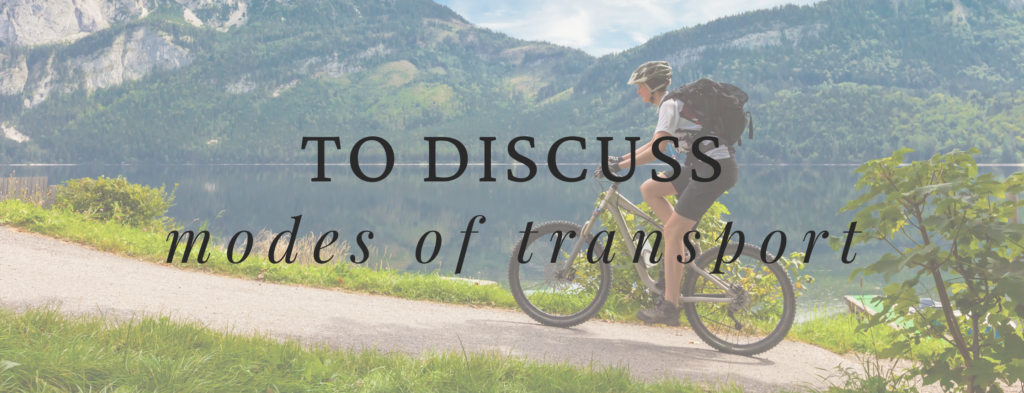

4. To Discuss Modes of Transport
На чём? – In what?
- Он прие́хал на маши́не, а не на по́езде. – He came by car instead of by train.
- Я полечу́ туда на самолёте. – I’ll go there by plane.
- Я е́зжу на рабо́ту на велосипе́де.– I cycle to work.
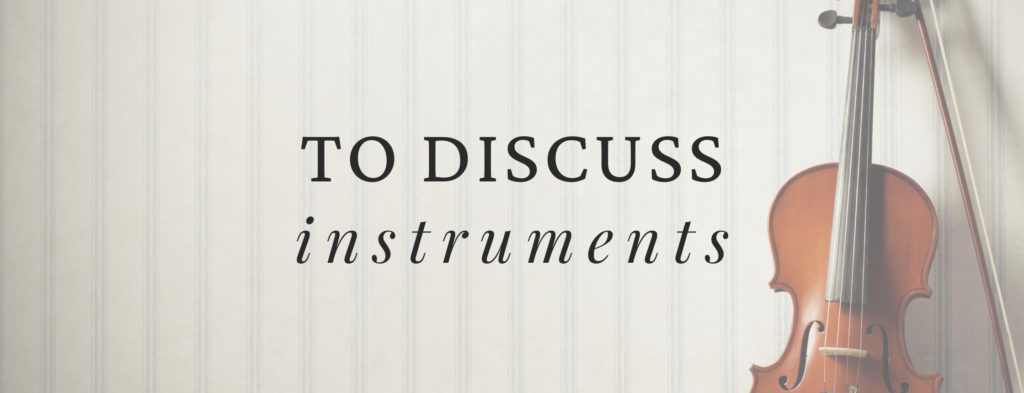

5. To Talk about Instruments
На чём? – On what?
- Мой брат игра́ет на гита́ре. – My brother plays the guitar
- Я игра́ю и на трубе́, и на пиани́но. – I play both the trumpet and the piano.
- Я больше не игра́ю на саксофо́не. – I don’t play the saxophone anymore.


6. To Talk About Clothes
В чём? – In what?
- Она обычно хо́дит в джинсах. – She usually wears jeans.
- Он в ко́жаных шортах. – He is wearing leather shorts.
- Я раньше никогда не ви́дела тебя в пла́тье. – I’ve never seen you in a dress before.




Practice the Prepositional Case in Russian!


Questions?
Comment below any questions you have or write your own examples using the prepositional case! If you need some more help, check out the videos below for more explanations and examples.
Learn to speak russian
Travel with ease & dive into the culture, history & lifestyle of post-Soviet countries
free russian learning materials
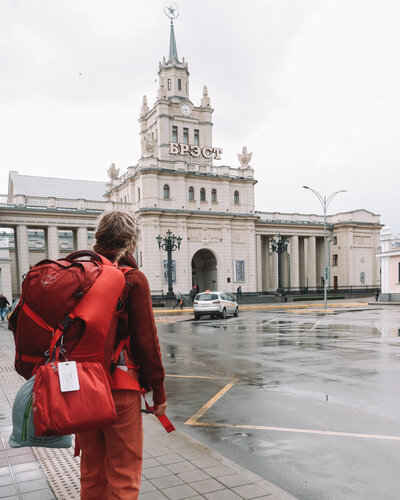
Melissa
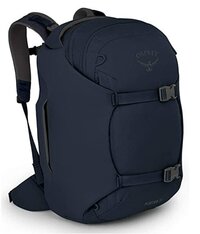
Get the Goods
Head over to the Language & Travel Shop to check out my favorite goodies I use for learning Russian and traveling! I've compiled all my favorite products I use when #onthebloc so that you can benefit from them when you travel abroad. Help yourself prepare and support this blog at the same time :) Счастливого пути!
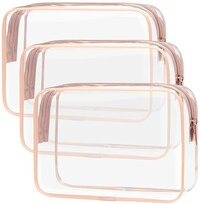



carry-on goods
gifts for travelers
photography
apparel & accessories
textbooks & readers
luggage & bags
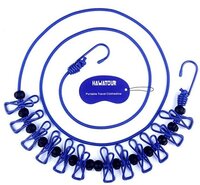
categories
#oTB essentials
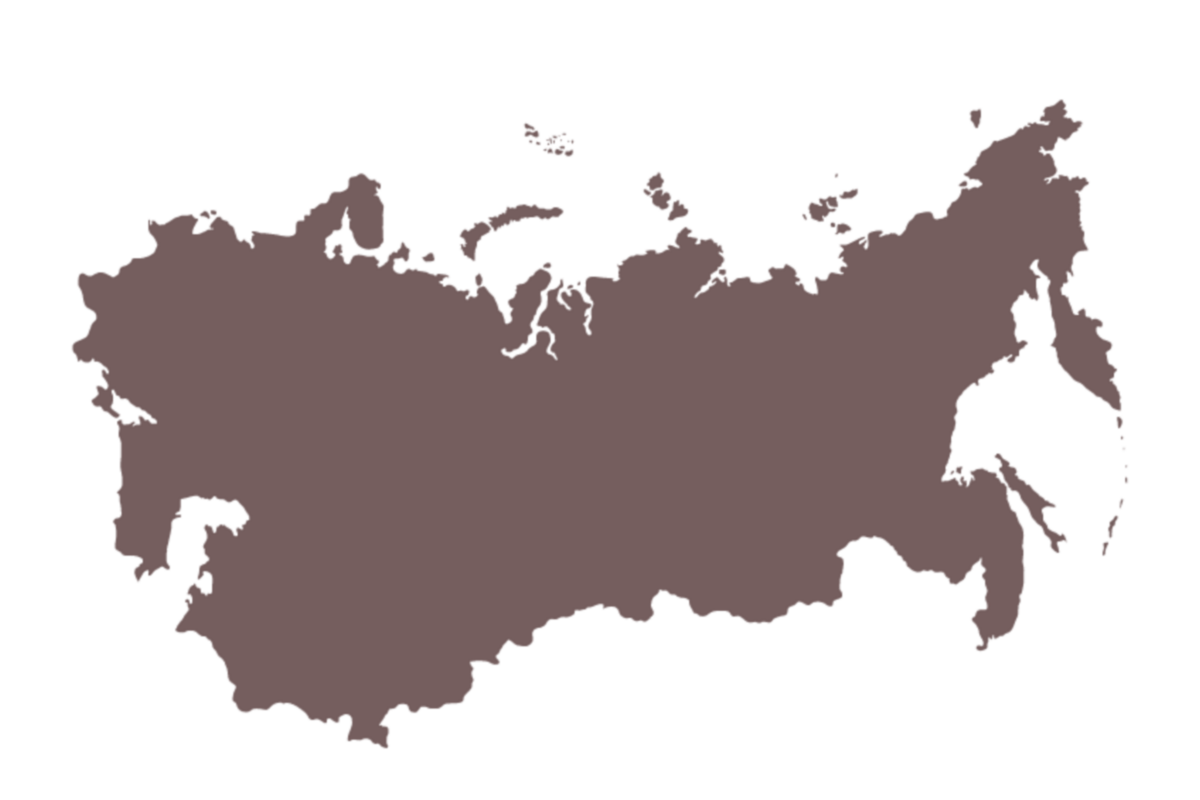
Russian-Speaking Travel Destinations
use your new russian skills in real life!
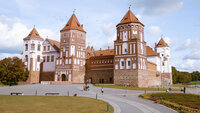
Belarus
EASTERN EUROPE
central Asia
central Asia


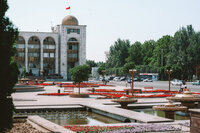
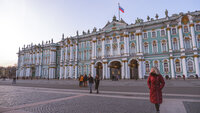
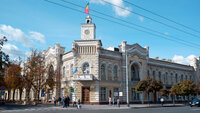
Eurasia
Russia
Kyrgyzstan
armenia
Moldova
Kazakhstan
eastern europe
read »
read »
read »
read »
read »
read »
The caucasus
travel guides
Get your FREE #OnTheBloc Starter Kit!
Sign up for the NGB Monthly Newsletter & you'll get a FREE downloadable PDF with Russian language and travel resources for your post-Soviet journey!
оставаться на связи

